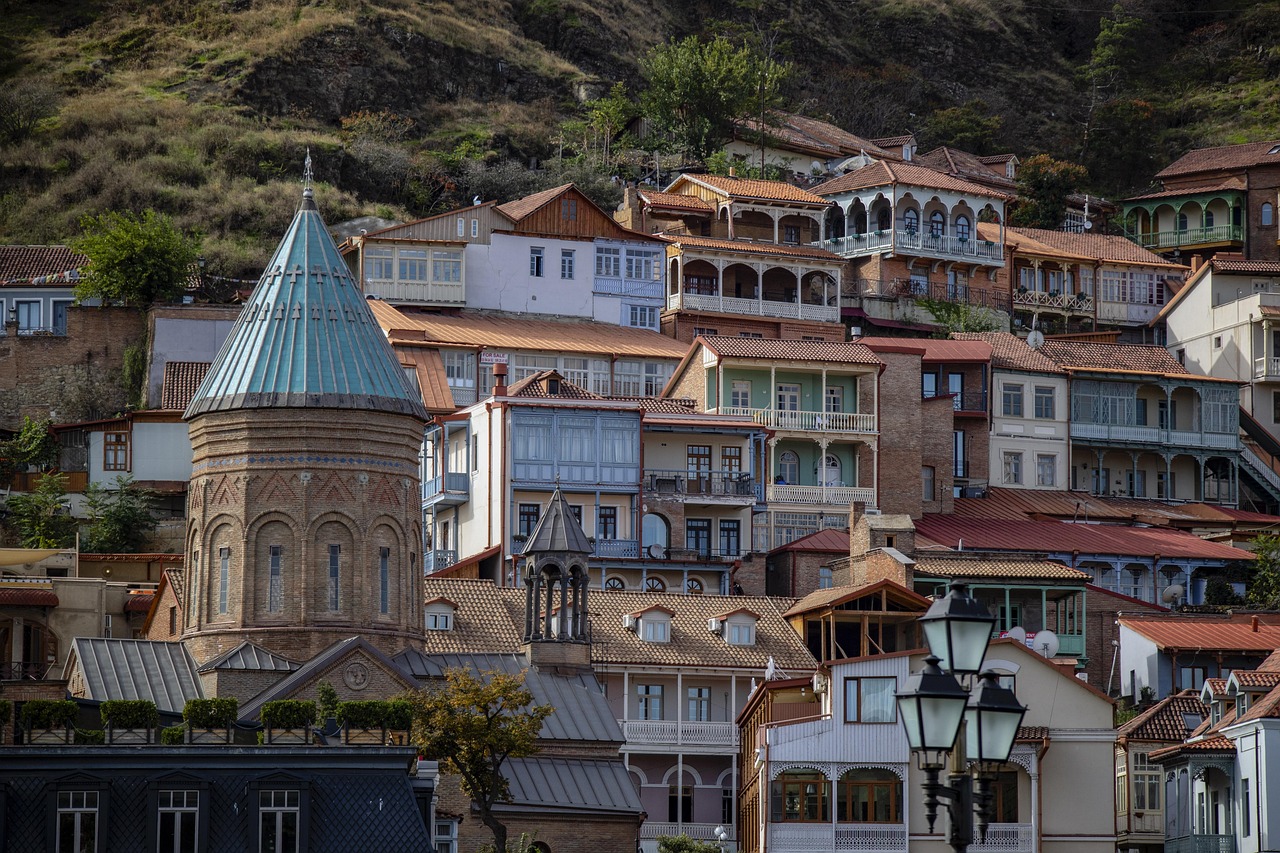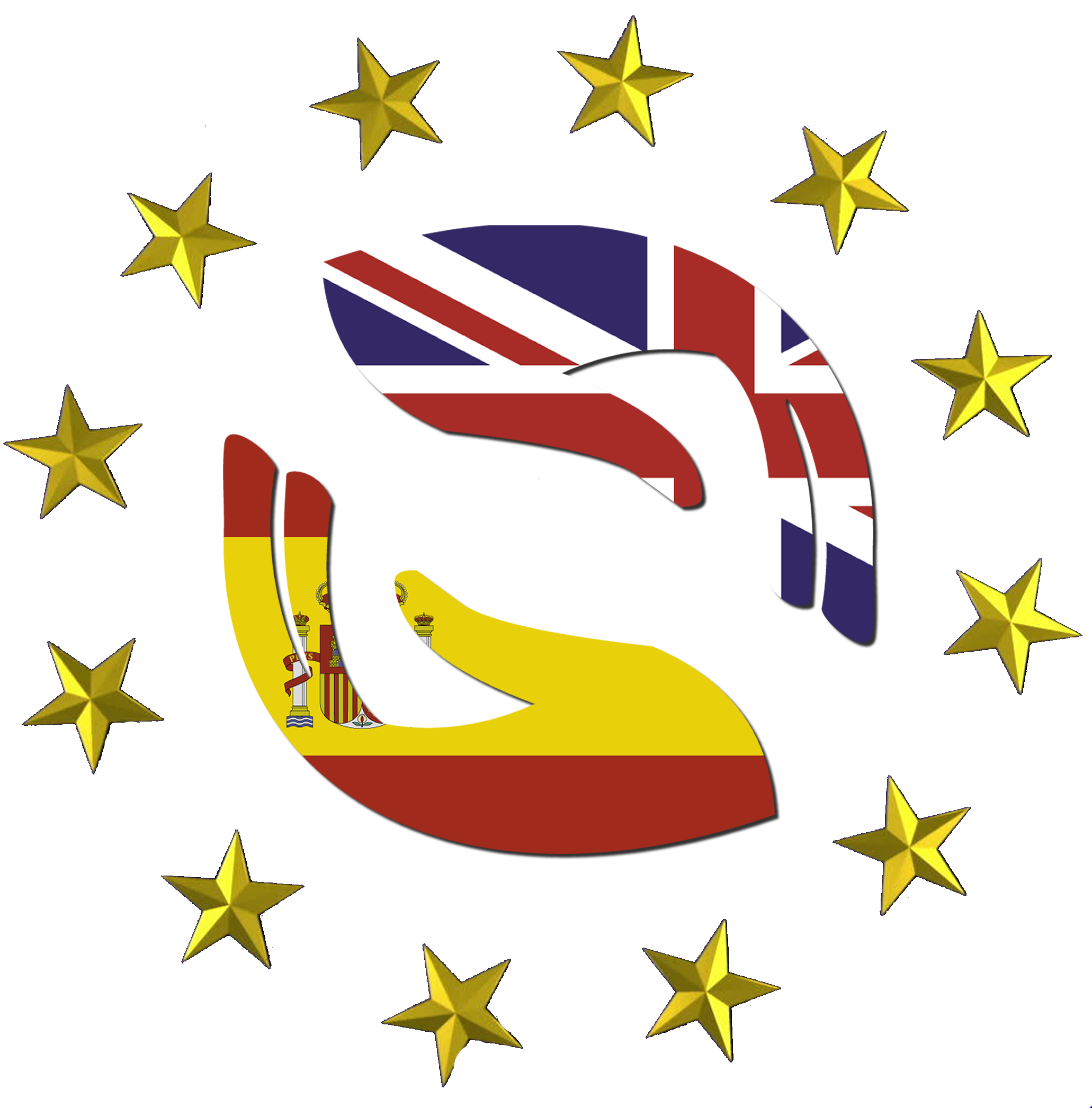“Democracy can collapse faster than we think”: urgent warnings from Georgia spotlight rising authoritarian threats across Europe and the West, writes Bremain Treasurer Helen Johnston for Yorkshire Bylines.
On 8 July, Grassroots for Europe hosted a Round Table webinar on the state of government and democracy in the USA and Europe. One of the key speakers was the former British ambassador to Georgia, Alexandra Hall Hall, who drew parallels between events there and in America, pointing out that democratic collapse can happen faster than we think.
First-hand testimony from Georgia
A last-minute guest speaker at the webinar was Georgian politician Dr Grigol Gegelia. Elected in the recent elections as a member of the Lelo Strong Georgia coalition, he is boycotting Parliament with the rest of the opposition in protest against the authoritarian, Russian-backed Georgian Dream government.
His description of the rapidly deteriorating situation there, including, shockingly, the detention of a fellow party worker minutes earlier, could not have been timelier for illustrating Alex’s warnings about the danger to democracy in America and Europe.
Georgians have been protesting for over 200 days now, with protesters subject to arrest, beatings, torture, imprisonment and heavy fines. In December 2024, Saba Buadze, who was also elected under the Lelo Strong Georgia banner, told me he believed Georgian Dream is capable of anything, and the use of repressive methods will increase: “We are at the stage of autocracy, and we are going downhill now.” Dr Gegelia’s words bear this prediction out only too grimly.
Targeting opposition parties
In January, the government set up a temporary commission to investigate alleged crimes committed by the UNM government that came into power following the 2003 Rose Revolution. Opposition politicians – regardless of their connections to this period – are being summoned to appear and risk imprisonment if they refuse. Key opposition leaders in Georgia have been jailed, sentenced to seven or eight months in prison and banned from holding office. According to Amnesty International, the commission has been instrumentalised to target former public officials for their principled opposition: “It has become a tool of political repression, not of parliamentary scrutiny, used to lock away political opponents ahead of local elections.”
Dr Gegelia explained that although the “temporary investigative commission was ostensibly set up to probe into alleged crimes committed by the UNM government in 2003–2012, it is basically a device to put the entire opposition on trial and then jail them for refusing to attend, because they knew that none of us would ever do so. If I’m summoned to attend, I will not do so, so I will also be fined or imprisoned for up to a year”.
Just before the webinar began, one of Dr Gegelia’s colleagues was stopped for a drug search and detained. The government denies that drug checks are being used to target protesters and political opponents, but, as Dr Gegelia said, “there were no plausible reasons to expect any such arrest”, and a number of those detained were activists or members of opposition parties.
Sliding towards dictatorship in Georgia
Dr Gegelia believes that Georgia could soon tip over into a complete, full-blown dictatorship. “They’re arresting activists and now introducing additional laws designed to curb all forms of political protest”, such as the Foreign Agents Registration Act. Ordinary protesters are deterred by extortionate fines – amounting to four to five months of the average Georgian salary – with provisions allowing for arrest if the fines go unpaid.
“They’re trying to deploy the entire machinery of law against their own citizens, against all forms of dissent, to silence all of us and those of us that will not be silenced, especially those working on international lobbying.”
When Dr Gegelia and colleagues from three other parties visited the Baltic states in January, the prime minister accused them of engaging in acts of sabotage: “He effectively gave a green light for prosecution services and others to potentially try us for crimes carrying sentences of seven to 15 years.”
Controversial local elections
Local elections are due to be held in Georgia in October. Some opposition parties have chosen to boycott them, while others, including Dr Gegelia’s Lelo party, have decided to stand. He argues that “we should use every platform possible, even where you don’t believe you can win. We do not believe that will serve to legitimise the regime, because we plan, while participating in those elections, to also call on all our friends and partners throughout the world to continue to speak out, act, sanction the regime’s people, isolate them as much as possible”.
He also acknowledges that other opposition groups have criticised his party for its stance (indeed, there is also internal dissent: Saba Buadze has resigned his post in disagreement, although he remains a party member). Dr Gegelia similarly recognises that the elections will not be free or fair, but “our purpose is to open up a new battlefront, to give people another dynamic, another possibility to engage, to fight and reclaim whatever we can”
Sanctions and international pressure
Dr Gegelia appealed for democracy activists to put pressure on Western governments to impose stricter sanctions. It seems Georgian Dream had hoped to draw on a “striking alignment” of values and ideology with the Trump administration. However, the US ambassador recently described the Georgian Prime Minister’s open letter to Trump and JD Vance as “threatening, insulting, unserious”. Legislation currently under consideration in the US Congress would authorise sanctions to counter the influence of Russia, China, and Iran in Georgia. The Georgian government regards the legislation as biased and hostile.
Nevertheless, Dr Gegelia believes the government currently fears the UK more than the US. Apart from possible channels for joint action with Europe, the UK could also act independently. Britain has already warned businesses in Georgia that they would face sanctions if they assist Russia in evading existing measures. On 4 July, Stephen Doughty, the Secretary of State for Foreign, Commonwealth and Development Affairs, noted that: “the UK’s support for the Georgian people’s Euro-Atlantic aspirations remains steadfast, and we stand ready to assist in any return to a trajectory towards European values and democratic norms”.
On 14 July, the UK government stepped up the pressure on Georgia in a video address delivered by British ambassador Gareth Ward, stating that: “The UK Foreign Secretary and other European partners have called on the Georgian government to release unjustly detained politicians, journalists and activists, repeal repressive legislation and engage in national dialogue with all relevant stakeholders to find a way out of the current situation”.
On 21 July, Doughty confirmed that the UK has downgraded bilateral cooperation and is considering further measures, urging Georgian Dream “to reverse course and engage in inclusive national dialogue with all stakeholders in Georgia’s future”. Georgian prime minister Irakli Kobakhidze lashed out with a Trumpesque response, saying, “This is a statement saturated with disinformation…there are serious problems in Great Britain in terms of media pluralism, in terms of media freedom, in terms of the influence of the ‘Deep State’ on the media”.
The EU increases the heat
Since Dr Gegelia spoke to us, the EU has also turned up the heat on the Georgian regime. In July, MEPs voted to endorse a report which “deplores the backsliding of the rule of law as well as the growing Russian influence on the ruling party, Georgian Dream”, followed by a joint letter issued by European Foreign Ministers expressing deep concern over the “deteriorating situation in Georgia”.
The EU high representative for foreign affairs, Kaja Kallas, responded to an open letter from Georgia’s former president, Salome Zurabishvili, saying that the attack on democracy by Georgian Dream is becoming increasingly severe and Georgia’s visa-free regime with the EU is at risk over concerns about democratic ‘backsliding’.
Georgia’s ruling party’s response mirrors that of the UK, describing the joint letter as “saturated with Soviet-style disinformation and false accusations”. Prime Minister Kobakhidze once again defended the foreign agents law, claiming it was necessary to defend Georgian “peace and stability” against foreign influence.
Individual EU member states are also increasing diplomatic pressure, with messages in recent days from the Dutch minister of foreign affairs and the French ambassador to Georgia, Sheraz Gasri. On 15 July, Giorgi Gakharia, the leader of the For Georgia party, met with Poland’s foreign minister, appealing for “unified and coordinated actions by the European Union, the United Kingdom, and the United States in supporting the Georgian people”.
This appeal is reflected in Dr Gegelia’s closing words to the Round Table audience: “In summary, we need action, and we need sanctions: sanctions do work. The regime is scared of sanctions, especially UK sanctions, because many of them are obviously hoping to find a safe haven for themselves and their money in the UK. Like the Russian oligarchs, they’ve bought properties, and they’ve tried to find some quiet spots to keep their money. So, they’re very scared of any threat to that. That is my message to all of you, as friends of democracy in Georgia and worldwide.”







